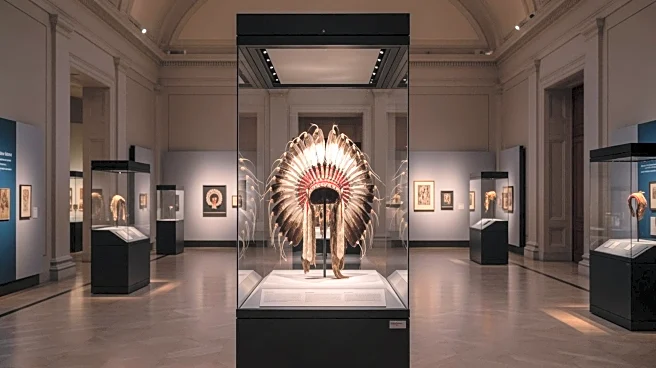What's Happening?
The Weltmuseum in Vienna is at the center of a cultural repatriation debate concerning the 'Moctezuma's headdress,' a feathered artifact attributed to the Aztec emperor. Mexican officials have long sought
the return of the headdress, which they consider a cultural touchstone, despite no evidence that Moctezuma actually wore it. Austrian officials argue that the artifact is too fragile to be moved. The headdress, known formally as the 'Quetzal Feather Headdress,' is a significant draw for the museum, attracting thousands of visitors, including many from Mexico. The artifact's history is complex, with its first recorded mention in a 1596 inventory in Austria, and its journey from Mexico remains unclear.
Why It's Important?
The dispute over the headdress highlights broader issues of cultural appropriation and the repatriation of artifacts. Many countries are increasingly demanding the return of cultural items taken during colonial times, arguing that they are integral to their national heritage. The headdress is not only a historical artifact but also a symbol of Mexican identity and pride. The debate raises questions about the responsibilities of museums in holding and displaying artifacts from other cultures, and the ethical considerations involved in their repatriation. The outcome of this case could influence international policies on cultural heritage and museum practices.
Beyond the Headlines
The controversy over the headdress also reflects ongoing tensions between former colonial powers and the countries they once controlled. It underscores the need for dialogue and cooperation in addressing historical grievances and finding solutions that respect cultural heritage. The case also illustrates the challenges museums face in balancing the preservation of delicate artifacts with the demands for their return. As discussions continue, the role of museums as custodians of global heritage is being re-evaluated, with potential implications for how cultural artifacts are managed and displayed worldwide.










